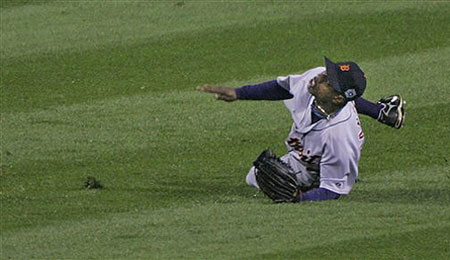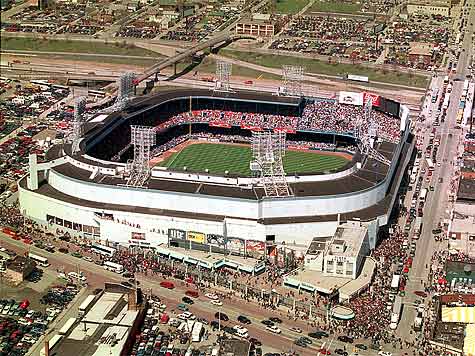 ON BASKETBALL
ON BASKETBALLWhen Joe Dumars pledged to "shake things up" this summer, this wasn't exactly what you were expecting.
OK, that's a guess. But I'm pretty confident in it. By all means, tell me if I'm off base. But signing serial underachiever Kwame Brown to a two-year contract doesn't exactly give the Pistons a fresh identity heading into the 2008-09 season.
And that's just fine. That's not the point of the move. There's still time for more serious shaking up to occur -- maybe even during the season.
But let's talk about this deal while it has the spotlight. What's the first word that pops into your head when the two words "Kwame Brown" are mentioned?
Scrub.
Malcontent.
Immature.
Lazy.
All true, but you could also throw out the following:
Potential.
Athletic.
Young.
Those three words are why this deal makes sense. Dumars is making a minimal investment in a guy who could either dedicate himself to being a strong role player on a contending team, or remain the staple of inconsistency he's been his first seven years in the league.
If the former is true, then great. The Pistons definitely need depth and size in their frontcourt. The 6-foot-11, 270-pound Brown provides that. Rasheed Wallace and Antonio McDyess aren't getting any younger or stronger. Big bodies shouldn't be taken for granted.
Of course, if the latter is true, then no biggie. The Pistons can dump Brown after two seasons -- if he chooses to pick up the option for his second year. They would only have lost $8 million on Brown. No, not exactly a disastrous New York Knicks contract.
If you think $4 million a year is a lot for a role player, then you're behind the times. That's what NBA veterans make these days. And if they don't receive offers for such money, they bolt for Europe. This summer has seen as many NBA players sign with European teams as foreign players join the league from abroad.
It's all about the money. And paying $4 million a year for a young big man with some potential is a worthy investment.
Do I think Brown is going to turn around his career in Auburn Hills? It's really hard to tell. My gut tells me no. But it's certainly the best situation for him. He'll be pushed by new Pistons coach Michael Curry, who won't take any indolence from him. He'll receive plenty of instruction from veterans Wallace and McDyess, but he won't be berated and demeaned like he was by Michael Jordan during his tumultuous time in Washington.
As witnessed by Jason Maxiell's maturation into a very solid frontcourt player off the bench, Detroit is a good place for a player like Brown. With Maxiell and the young Amir Johnson on the Pistons' bench, Brown will have to fight for every minute of playing time. There will be no free minutes. Being in an environment ripe with talented players will force Brown to dedicate himself to the game if he wants to become part of the rotation.
All good things.
And Brown has solid potential. OK, not No. 1 pick potential, which is what M.J. (somehow) saw in him. But with the right work ethic and environment, Brown could become a critical part of the Pistons' charge to finally return to the NBA Finals. He has the size and athletic ability. He just needs a lot of fine-tuning.
Do I like Kwame Brown as a player? Nope.
Would I call him a scrub right now? Yeah, though not to his face.
But Dumars, like most of the time, knew what he was doing.
He made a low-risk investment.
It could have no return. It could net a big return.
Only time will tell.










